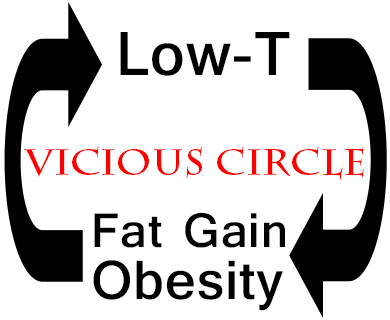Niacin, aka vitamin B3 – what you need to know about potential side effects
- Published in Diet, Nutrition & Supplements

Testosterone and Fat Loss - the Evidence
- Published in Testosterone Replacement Therapy

Testosterone and Diabetes in Men - is there any association?
- Published in Testosterone - Men

Low levels of testosterone in men may contribute the development of insulin resistance and diabetes.[1-4] However, few studies have examined the association between testosterone levels and diabetes in men in the general population.
An interesting study was cunducted to test the hypothesis that low normal levels of total, free, and bio-available testosterone are associated with prevalent diabetes in men.[5]



